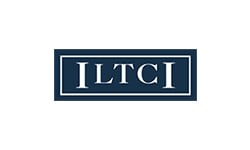If you are a producer who writes Life Insurance products with New York clients, including Life/LTC plans, effective February 1st 2020 you need to comply with New York State Department of Financial Security Section 187. The regulations are designed to have life insurance and annuity recommendations be made in the best interest of the client - not the insurance agent. Are these regulations a sign of things to come in more states - and how do they impact long-term care insurance?
The good news for most advisors and financial representatives is that making recommendations in the best interest of the client is something that they currently do, so the New York regulations shouldn't change their basic business model. What may change is the need to document the process that makes sure they are acting in the best interest. Specifically, simply having a copy of the carrier illustration or quote that was delivered to a client is not demonstrating the work that went into the recommendation.
Currently, Regulation 187 only impact clients in New York (regardless of where the financial representative works) and only for annuity and life insurance sales. However, if past history is any indication, more states may introduce similar rules. Because linked Life/LTC plans are a significant part of LTC sales planning, anyone who sells long-term care insurance in New York will be impacted. In fact, it wouldn't be surprising if the best interest regulations also included traditional LTC Insurance sales transactions at the same time in the future.
Even if you don't do business in New York, some of the requirements of the regulations make sense. For example:
- Keeping copies of recommendations that were made for active clients indefinitely and for others (inactive clients) at least seven years.
- Complete a customer profile/needs analysis - here's a generic version
- Compare different products and save a copy of the comparison - here's a link to illustration tools
Modern customer relationship management products (CRMs) allow someone to keep all those records in one place, and completing a profile and needs analysis for your client is step 1 of the LTC planning process. Comparative quoting tools show that several carriers have been considered before one is recommended.
Do you have client in New York who may be a prospect for linked Life/LTC Insurance? Here are links to carrier resources that describes training that needs to be completed and additional instructions on compliance:
Lincoln Financial: Suitability and Best Interests in Life Insurance and Annuity Transactions
Nationwide: February 1, 2020 Implementation Plan for Nationwide Life Insurance and New York Reg. 187 - Suitability/Best Interest Regulation Advisor Record Retention and Required Documentation Checklist
Topics: LTC legislative news, Linked Benefits, Long-term care planning, hybrid life/Long-Term Care















-CMYK.png?width=250&name=LifeSecureLogo(F)-CMYK.png)



.png?width=860&height=245&name=Full%20Color%20Krause%20Group%20Horizontal%20(002).png)


